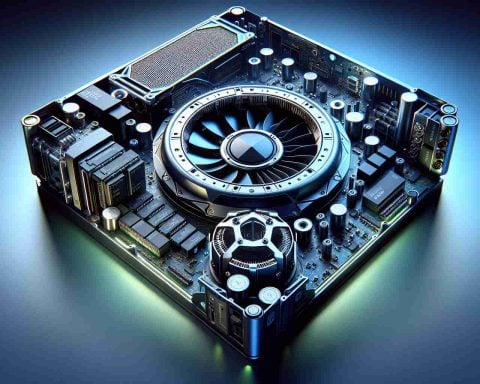A Bold Step Towards Sustainability
A significant announcement has emerged from Technology Minerals PLC’s subsidiary, Recyclus Group Ltd. In an exciting development, the company has secured a partnership with a prominent global automotive manufacturer to recycle lithium-ion (Li-ion) battery packs. This collaboration marks a crucial advancement in the realm of sustainable practices within the automotive industry.
The batteries in question will be processed at Recyclus’ state-of-the-art facility located in Wolverhampton. This operation aims to handle hundreds of electric vehicle Li-ion battery packs, which will be obtained through a comprehensive recall program both from local and international sources.
Recyclus Group is excited about this strategic collaboration, as it aligns with their goal to enhance sustainability efforts in the automotive sector. The partnership underscores the innovative recycling solutions Recyclus provides, which is recognized at an international level.
This collaboration not only emphasizes the importance of recycling in mitigating environmental impact, but it also positions Recyclus as a leader in the field of battery recycling. By working with a globally renowned company, Recyclus is set to propel its mission forward, enhancing its reputation as a reliable service provider in the Li-ion battery recycling landscape. This partnership is a pivotal move towards a more sustainable future for electric vehicles and the broader automotive industry.
Revolutionizing Battery Recycling: A Strategic Alliance for a Greener Future
A Bold Step Towards Sustainability
In a groundbreaking development for the automotive and recycling industries, Technology Minerals PLC’s subsidiary, Recyclus Group Ltd, has secured a partnership with a leading global automotive manufacturer. This alliance is primarily focused on the recycling of lithium-ion (Li-ion) battery packs, a key component in electric vehicles (EVs).
The recycling initiative will take place at Recyclus’ advanced facility in Wolverhampton, England. This facility is well-equipped to process hundreds of Li-ion battery packs sourced from an extensive recall program aimed at both local and international markets. Such initiatives not only demonstrate Recyclus’ commitment to sustainability but also address the increasing demand for efficient battery disposal and recycling methods.
Features of the New Partnership
– Innovative Recycling Solutions: The initiative focuses on cutting-edge technologies designed to recover valuable materials from spent batteries, reducing waste and enhancing resource circularity.
– International Recognition: Recyclus has garnered attention globally for its commitment to sustainable practices, solidifying its role as a leader in battery recycling.
– Environmental Impact Mitigation: By facilitating the recycling of these batteries, the partnership aims to significantly lower the environmental footprint associated with battery production and disposal.
Pros and Cons
Pros:
– Reduces the environmental impact of battery waste.
– Recovers valuable materials for reuse in new battery production.
– Positions Recyclus as a key player in the sustainable automotive supply chain.
Cons:
– The initial costs of establishing recycling operations might be high.
– Dependence on a sustainable supply chain and logistics for collection.
Use Cases of Recycled Li-ion Batteries
Recycled batteries can be repurposed in various applications, including:
– Energy storage systems for renewable energies.
– New electric vehicle batteries.
– Consumer electronics, reducing the need for new raw materials.
Trends and Insights in Battery Recycling
The EV market is experiencing exponential growth, with projections indicating that global EV sales could reach 30 million units annually by 2030. This surge creates an urgent demand for effective battery recycling solutions. Moreover, regulatory frameworks are increasingly pushing automotive manufacturers toward adopting sustainable practices, making partnerships like the one formed between Recyclus and the automotive giant pivotal in shaping the industry’s future.
Limitations of Current Recycling Technologies
While advancements in battery recycling are promising, challenges remain, including:
– Technological Constraints: Current recycling processes may not fully recover all materials.
– Economic Viability: The recycling process can sometimes be more costly than sourcing new materials, though this is expected to change as technology improves.
Future Predictions
The partnership between Recyclus and the automotive manufacturer is expected to set a precedent in the industry, driving other manufacturers to consider similar eco-friendly practices. The demand for transparent and sustainable practices will only increase as consumers become more environmentally conscious.
Conclusion
This partnership between Recyclus Group and a leading automotive manufacturer represents a pivotal shift towards sustainable practices in the automotive sector, particularly in battery recycling. By harnessing innovative solutions and enhancing circular economy principles, both companies are poised to make a significant impact on reducing the ecological footprint of electric vehicles.
For more details on innovative recycling solutions and sustainability efforts in the automotive industry, visit Technology Minerals PLC.












